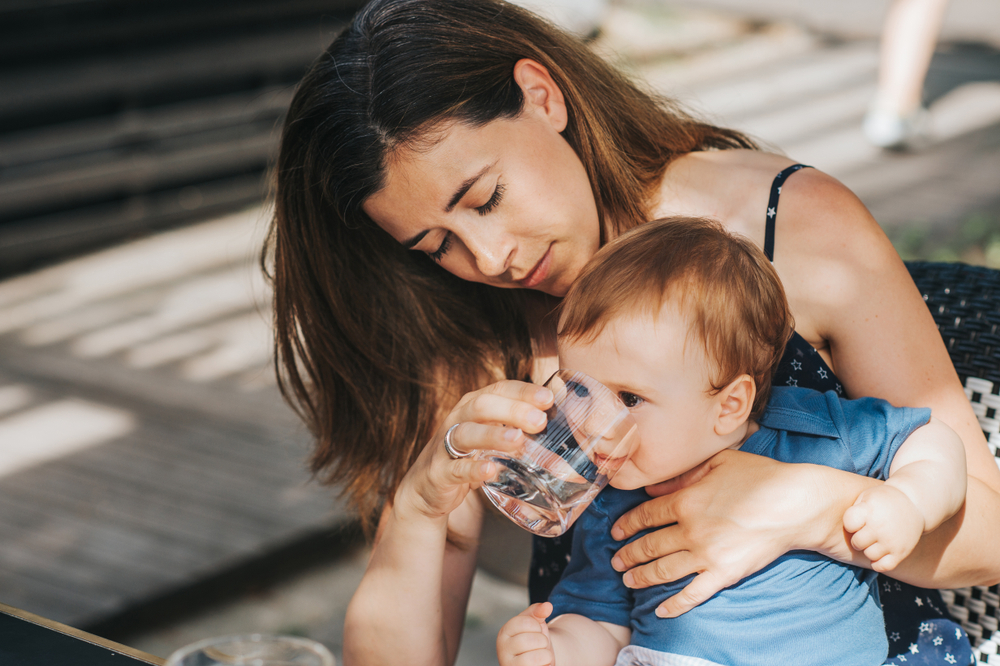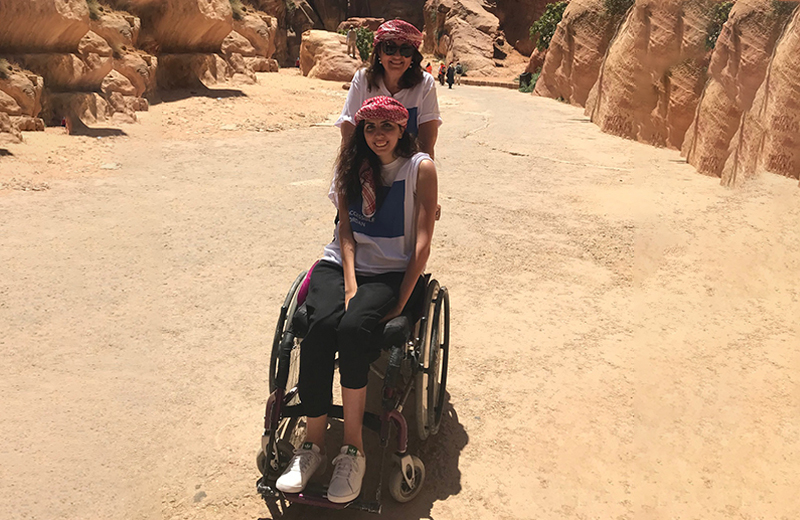Children's Health
Two main ways to keep your baby healthy during Flu season

“Dr. Linda, last year my baby caught a cold in October and kept it all winter. Is there anything I can do to prevent him from getting a cold this year?”
There are two main ways to keep your baby healthy during cold and Flu season, the first is to lower your baby’s exposure to viruses, and the second is to strengthen your baby’s immune system. I will go through each one of them thoroughly in this article:
First: Lowering your baby’s exposure to viru/en/article/health/childrens-health/all-you-need-know-about-influenza-and-h1n1ses
Avoid situations with a high potential for exposure to viruses during cold and Flu season. Areas with a lot of people pose a high risk of exposure for anyone, especially a young baby.
This is particularly important for babies less than three months old because their immune systems are immature and not effective at fighting off infections.
Places to avoid during cold and Influenza season
- Public places like grocery stores and malls
- Large gatherings of people such as school, daycare, places of worship, large family gathering and parties
If you can’t avoid taking your baby to such a public place, consider these guidelines.
- Cover him up so nobody can sneeze or cough on him by accident
- Don’t let anyone who is sick get too close to your baby or pick him up
- Make sure everyone who wants to touch your baby washes their hands first
- Carry hand sanitizer so you can clean your hands before touching your baby
The proper hygiene practices you need to follow each time your kid is exposed to infections are:

- Handwashing: your baby most commonly gets exposed to cold viruses through touch. Cold viruses are transferred to everything an infected person touches. When you touch something with a cold virus on it and then touch your baby without washing your hands, you transfer the virus to him.
- Hand sanitizer: If you don’t have access to water, you can use hand sanitizer.
- Nasal Suctioning: this prevents colds by physically removing the virus from your baby’s nose after exposure, suction your baby’s nose at the end of each day in the winter season and when he is exposed to a lot number of people.
What to do if you or a family member has a cold:
Make sure whoever has a cold sneezes or coughs into a tissue that can be thrown out. Ask whoever has a cold not to kiss or put their face too close to the baby.
Make sure that whoever is sick washes their hands well before touching the baby.
Exposure to cigarette smoking increases the number colds and ear infections that babies get so please don’t let anyone smoke around your baby.
Second: strengthening your baby’s immune system
The most holistic way to strengthen your baby’s immune system is through nutrition. A strong immune system not only prevents colds but makes it easier for your baby to recover from a cold or sickness.
And in order for your baby’s immune system to be strong and healthy, you need to consider the following:
1. Breastfeeding:

Breastfeeding is the best way to strengthen your baby’s immune system. It gives your baby everything they need to grow healthy intestinal bacteria (microbiome).
Another advantage of breastfeeding is that any antibodies you have against cold viruses are transmitted to your baby through your breastmilk and will help protect him.
That’s why, even if you catch a cold while you’re breastfeeding, you don’t have to stop. When you catch a cold, your body will start making antibodies against the virus you have. These antibodies will then be transferred to your baby through your breastmilk and protect him baby against the infection!
2. Foods to strengthen your baby’s immune system:
Once your baby is old enough to eat solid food, around 6 months of age, you can start using food to strengthen your baby’s immune system.
- Vegetables and fruits: Vegetables and fruits are full of antioxidants, vitamins, and sulphuric compounds — all of which strengthen your baby’s immune system.
Vitamins A, E and C, Polyphenols (the compounds that give color to fruits and vegetables), Selenium (found in broccoli and nuts) and sulfuric compounds (in brussels sprouts, cabbage, chives, kale, leeks, onions, and shallots) are all essential to strengthen your baby’s immune system.

- Vitamin C: of all the Vitamins, Vitamin C has gotten the most attention because it not only seems to prevent colds but it also shortens the length of a cold once a baby has it.
Vegetables high in Vitamin C include peas, bell peppers, green leafy vegetables. Fruits high in Vitamin C include tomatoes, oranges, grapefruit, lemon, kiwi, papaya, and berries.
- Essential Fatty acids: Essential Fatty Acids (EFAs) are fatty acids your baby’s body can’t make on its own so he has to get them through the diet.
If you are breastfeeding make sure you are getting enough EFAs so that you can transmit them to your baby through your breastmilk.
If your baby is eating a full diet one serving of low-mercury fatty fish like sardines, anchovies, mackerel or tuna three times a week will give your baby the EFAs he needs.
- Probiotics: Probiotics are live bacteria which support the healthy functioning of the intestinal tract immune system (microbiome). Lactobacillus rhamnosis, Lactobacillus GG, Lactobacillus acidophilus, and Bifidobacterium animalis are the probiotics which have been scientifically proven to prevent colds.
Sources of probiotics:
- Yogurt with active cultures.
- Kefir.
- Homemade pickles (made without vinegar).
- Sauerkraut.
- Miso.
- Garlic: it prevents colds and shortens the length of colds. Use a lot of garlic while cooking during cold and flu season. Chicken soup made with chicken bones, garlic, onions, leeks and ginger is a healthy, great tasting way to strengthen your baby’s immune system.
- Water: Good hydration is key to the optimal functioning of your baby’s immune system because it is key to the optimal functioning of his body.
Give your child ½ ounce for every pound of body weight, or 30ml for every kilogram of body weight, of clean filtered water every day.

- Zinc: Is a trace metal which is important in the functioning of our immune system. The safest way to add Zinc to your baby’s diet is to add foods high in Zinc
- Lamb
- Pumpkin seeds (ground if baby is less than 4 years old)
- Grass-fed beef
- Chickpeas
- Cashews (ground up if your baby is less than 4 years old)
- Yogurt or kefir
- Mushrooms
- Spinach
- Chicken
- Vitamin D3: Vitamin D plays an important role in strengthening your baby’s immune system. Low Vitamin D levels lead to an increased susceptibility to infections.
If you are concerned that your baby may be low in Vitamin D, have your doctor check his Vitamin D level. In the meantime, add the following natural-Vitamin D food sources to your baby’s diet.
- Fatty fish such as tuna, mackerel, and salmon
- Dairy products, orange juice, soy milk, and cereals that are fortified with Vitamin D
- Cheese
- Beef liver
- Egg yolks
- Herbs to strengthen your baby’s immune system: Chamomile tea may have some benefit in preventing colds and reducing symptoms in colds
Most herbs used in adults to help with colds such as Andrographis, Astragalus, Ginseng, and Echinacea have not yet been studied in babies and children. Their safety and effectiveness are unknown.
References:
- https://www.cdc.gov/handwashing/when-how-handwashing.html
- https://www.ncbi.nlm.nih.gov/pubmed/20940683
- https://www.ncbi.nlm.nih.gov/pubmed/359266
- https://www.ncbi.nlm.nih.gov/pubmed/20940683
- https://www.ncbi.nlm.nih.gov/pubmed/359266
- https://www.webmd.com/food-recipes/features/garlic-immunity-boosting-superstar
- http://www.umm.edu/health/medical/altmed/herb/garlic
- http://news.psu.edu/story/141171/2008/08/18/research/probing-question-how-do-antioxidants-work
- https://www.healthychildren.org/English/ages-stages/baby/breastfeeding/Pages/Breastfeeding-Benefits-Your-Babys-Immune-System.aspx
- https://www.ncbi.nlm.nih.gov/pmc/articles/PMC3166406/
- https://www.ncbi.nlm.nih.gov/pubmedhealth/PMH0050298/
- http://onlinelibrary.wiley.com/doi/10.1002/14651858.CD001957.pub3/full













